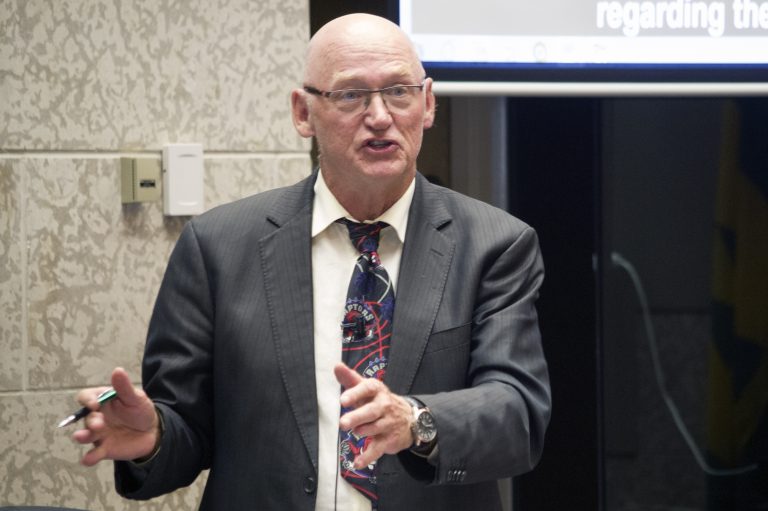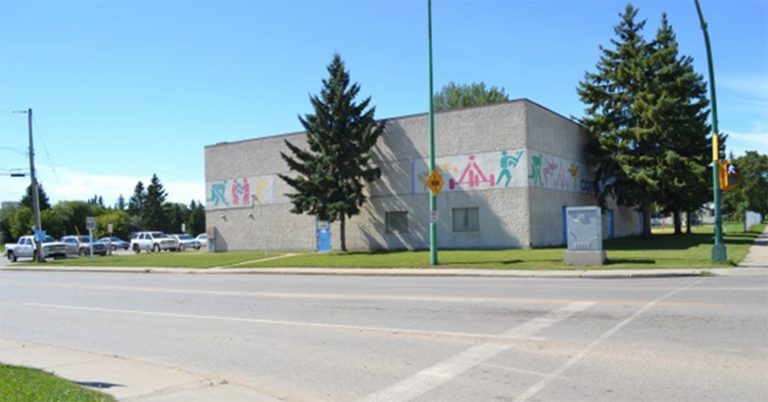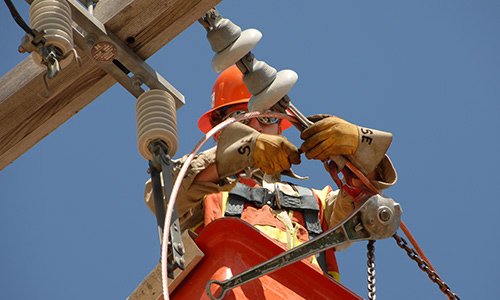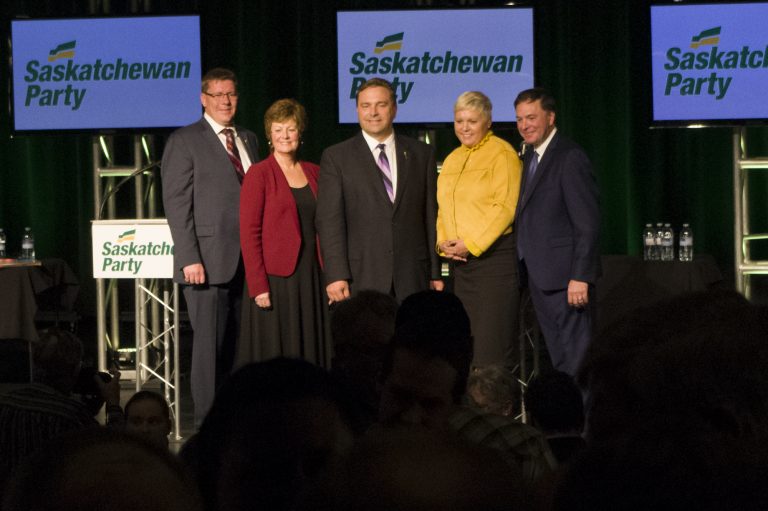There was plenty of discussion, but very little disagreement as the five Saskatchewan Party candidates vying to succeed Brad Wall as premier faced off for a debate in Saskatoon on Saturday.
Candidates Ken Cheveldayoff, Alanna Koch, Tina Beaudry-Mellor, Scott Moe and Gord Wyant took to the stage for the third debate of the leadership campaign, although they rarely took the opportunity to distance themselves from their competitors.
The five candidates spent much of the night agreeing with each other on the 10 debate questions taken from Saskatchewan Party members.
Healthcare, balanced budgets, the arts, landfills, the federal carbon tax plan and the party’s relationship with Saskatchewan teachers were just some of the topics breached. There were no questions about the Global Transportation Hub land deal, although Tina Beaudry-Mellor did reference the issue when answering a question on being competitive in urban constituencies.
“(Urban voters) are concerned about the GTH, and we would like to see some transparency on that,” she said. “We have an RCMP investigation (underway) right now, but depending on the outcome of that RCMP investigation we may need to have a public inquiry.”
Gord Wyant, the party’s former Minister of Justice, has also called for a public inquiry on the issue.
The province’s finances continue to loom large over the campaign, especially with the first question of the afternoon. The candidates were asked about their plans to balance the budget, with most sticking to policies announced prior to the debate.
Scott Moe remained committed to his previously announced three-year plan to balance the budget, with the goal of increasing infrastructure spending further down the road. He also maintained his commitment to restoring the PST exemption on life, health and crop insurance.
Alanna Koch, who has campaigned on following in Brad Wall’s footsteps, said a balanced budget is important, but so was compassion and minimizing the impact of tough choices. She said taking an extra year to balance the budget would help minimize that impact. She also vowed to review the PST exemption on insurance.
Tina Beaudry-Mellor said last spring’s provincial budget was a tough budget, and admitted it angered a number of the province’s job-creators and community leaders. Like Koch, she called for an extra year to balance the budget to ease the level of disruption for Saskatchewan residents, and like Moe, she vowed to restore the PST exemption on insurance.
Beaudry-Mellor returned to the budget issue again during a question on arts funding, which she cited as one area that shouldn’t be sacrificed to maintain a three-year plan.
“This is an important part of quality of life and when we consider balanced budgets, we need to consider very carefully that support for the arts cannot take second place to balanced budgets,” she said. “That is why I had suggested that we need to think and be mindful about (having) a very tight time frame for balanced budgets.”
Gord Wyant’s answer was the shortest of the five candidates. He called the three-year plan is a good one, and said if the party starts asking questions about the fundamental role of government, they’ll find other efficiencies that make the plan achievable.
Ken Cheveldayoff also supported the three-year commitment and dismissed potential four-year plans from Koch and Beaudry-Mellor, saying the province needs to balance its books to attract future investment.
“I believe that we shouldn’t be watering this down by taking our three-year commitment to four years or five years,” he said.
Candidates were each given a one-minute opening statement at the start of the debate. They also received one minute to answer each question, and a one-minute closing statement.
The fourth Saskatchewan Party leadership debate will be held on Nov. 16 in North Battleford.
@kerr_jas • jason.kerr@paherald.sk.ca


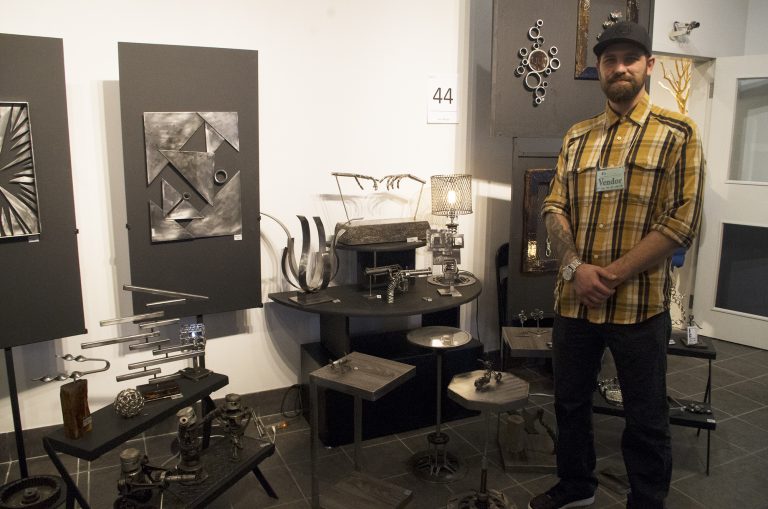
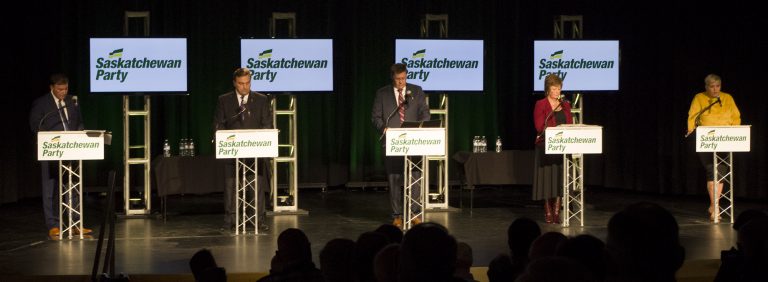
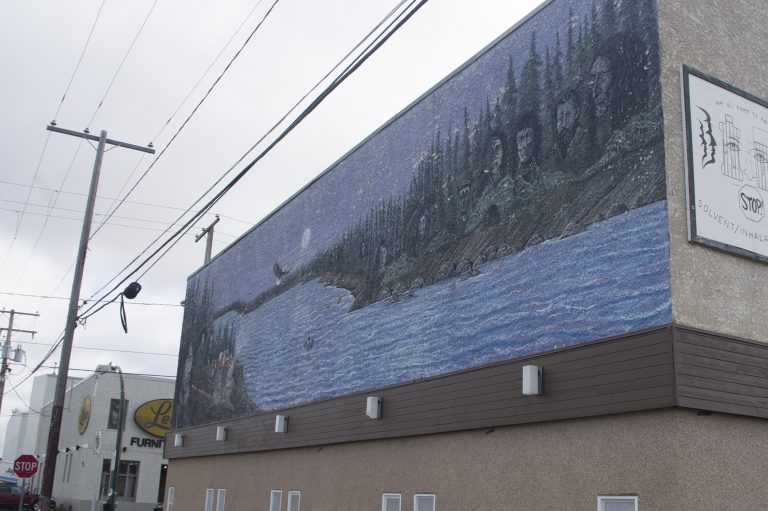

![On the hunt for foster families [Updated] On the hunt for foster families [Updated]](https://paherald.sk.ca/wp-content/uploads/2017/11/Foster.jpg)
